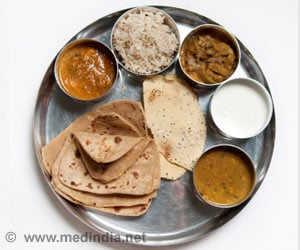The Department of Biotechnology and the International AIDS Vaccine Initiative signed an agreement today to address a major obstacle in AIDS vaccine development.
The Department of Biotechnology (DBT), Ministry of Science & Technology, Government of India and the International AIDS Vaccine Initiative signed an agreement today to address a major obstacle in AIDS vaccine development: the design of candidate vaccines to elicit neutralizing antibodies against HIV. A new Indian Medicinal Chemistry Programme, co-sponsored and co-funded by IAVI and the Department of Biotechnology, will comprise top Indian and U.S. scientists tasked with accelerating the pace of AIDS vaccine discovery and developing creative concepts for the next generation of AIDS vaccines.
Union Minister for Science and Technology and Earth Sciences Shri. Kapil Sibal said that vaccine research is so critical that the Health Ministry and the Science and Technology Ministry have joined hands to provide the effort the support it needs.India’s Department of Biotechnology is delighted to be a part of the global search for an efficacious AIDS vaccine. This was stated by Dr. Maharaj K. Bhan, Secretary, DBT. He said only through these kinds of biotechnology ventures involving international collaborations and the sharing of scientific knowledge, can we hope to solve the complex biomedical problems of our times.
According to Seth Berkley, CEO and President of IAVI, this new partnership will broaden ongoing efforts in India to find an AIDS vaccine.
The Indian Programme will complement the work of IAVI’s Neutralizing Antibody Consortium (NAC), a team of internationally recognized scientists working on the neutralizing antibody challenge. Researchers believe an ideal AIDS vaccine must evoke an antibody response that can block HIV from entering healthy cells, as well as reduce the amount of viral dissemination through a cell-mediated immune response to HIV-infected cells. Yet today, virtually all current vaccine candidates in the pipeline are based on cell-mediated immune responses alone, failing to target the second critical arm of the human immune system.
The first component of the DBT-IAVI Programme will consist of a collaboration of principal investigators from different academic research laboratories to design novel HIV antigens. The investigators include Professor Virander S. Chauhan of the International Centre for Genetic Engineering and Biotechnology, New Delhi; Professor Raghavan Varadarajan of the Indian Institute of Science, Bangalore; Dr. Stephen Kaminsky of IAVI’s AIDS Vaccine Development Laboratory, New York; and Dr. Philip Dawson of The Scripps Research Institute, California. IAVI and DBT may select additional principal investigators, contract researchers, or partners in India to participate in the Programme, and will discuss ways to build infrastructure for subsequent HIV/AIDS vaccine candidate evaluation.
At a later stage, based on their initial research and vaccine design concepts, both partners expect to work with an Indian manufacturer to assist with high throughput synthesis, antigen chemical characterization and potency evaluation of proposed AIDS vaccine candidates.
The International AIDS Vaccine Initiative (IAVI) is a global not-for-profit organization whose mission is to ensure the development of safe, effective, accessible, preventive HIV vaccines for use throughout the world. Founded in 1996 and operational in 24 countries, IAVI and its network of collaborators research and develop vaccine candidates. IAVI's financial and in-kind supporters include the Alfred P. Sloan Foundation, the Bill & Melinda Gates Foundation, The John D. Evans Foundation, The New York Community Trust, the James B. Pendleton Charitable Trust, The Rockefeller Foundation, The Starr Foundation, The William and Flora Hewlett Foundation; the Governments of Canada, Denmark, Ireland, The Netherlands, Norway, Sweden, the United Kingdom, and the United States, the Basque Autonomous Government as well as the European Union; multilateral organizations such as The World Bank; corporate donors including BD (Becton, Dickinson & Co.), Continental Airlines, Google Inc., Merck & Co., Inc. and Pfizer Inc; leading AIDS charities such as Broadway Cares/Equity Fights AIDS and Until There's A Cure Foundation; other private donors such as The Haas Trusts; and many generous individuals from around the world.
Source-PIB
SRM/B






